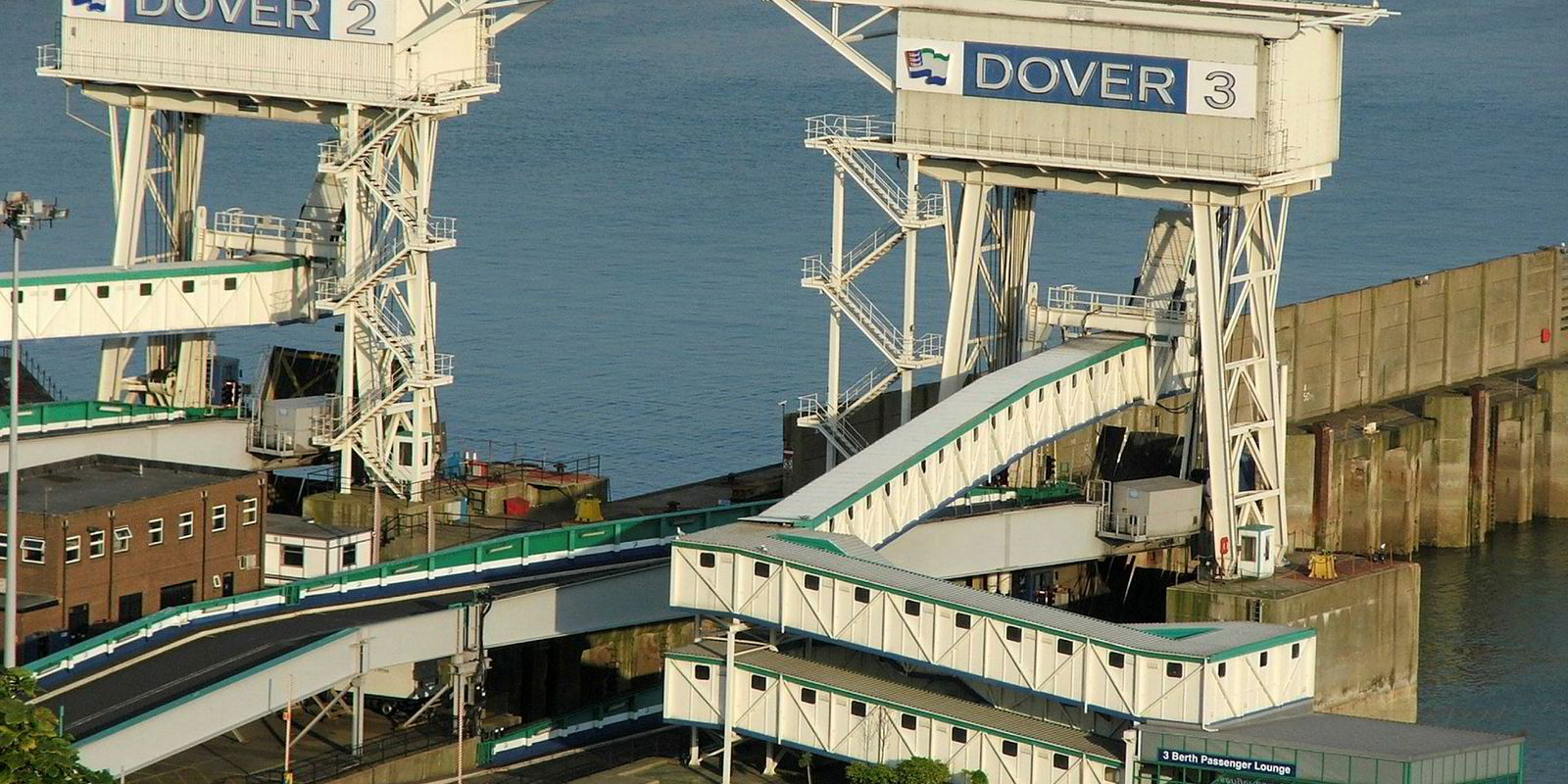Short sea container lines could bail out the UK if congestion is experienced after it leaves the European Union.
This is according to a study by shipping consultancy Drewry, which said spare capacity could be used to ease problems at Dover.
A previous Drewry study had concluded that Dover had the capacity to cope with moderate Brexit disruption.
Tim Power, head of Drewry Maritime Advisors said: “We understood from the findings of our initial assessment that a proportion of trailer-based freight transiting Dover could be suitable for transportation and re-routing by container. We wanted to see whether and how this could be handled”.
He added: “In assessing the practical viability of that alternative it became clear that container shipping line services not only have the capacity, options and flexibility to handle additional container volumes in the event of disruption to cross-Channel freight services but crucially, container terminals in the UK have the capacity to meet the additional throughput demands.”
Mode switch needed
The research found that of the cargo in the 2.5m trailers handled by Dover today, 20% could move to another mode of transport.
This equates to 10,000 teu per week in each direction.
Drewry identifies four ways lines could meet the demand: use spare capacity on existing services, increase frequency, use bigger ships and launch new services.
It said that 11 UK container ports have a combined 5.9m teu per year of unused capacity, most of which is near to Dover.
"There are sufficient container vessels in the market today – feeder size vessels represent over half of the total fleet - and there is a very liquid charter market," Drewry said.
"Surplus containers on the continent could be used for exports to the UK. After unpacking, these containers could be moved to demand locations in Asia on deep-sea services."





